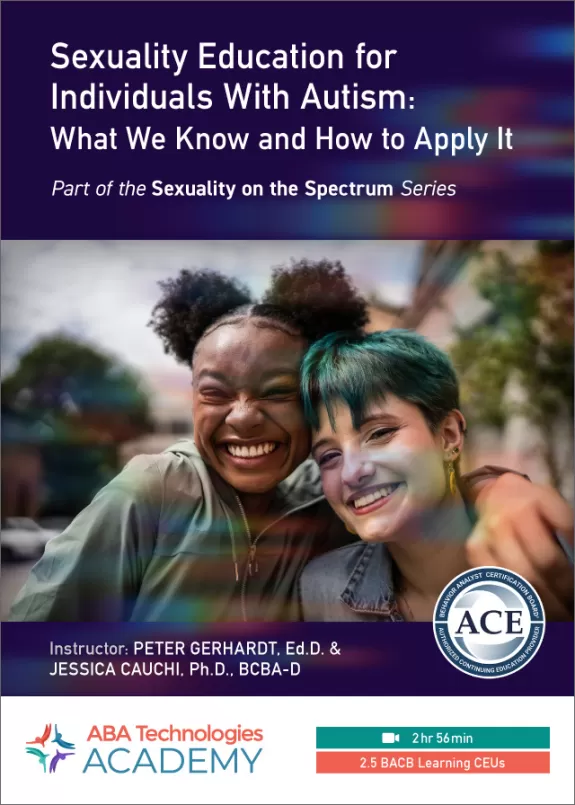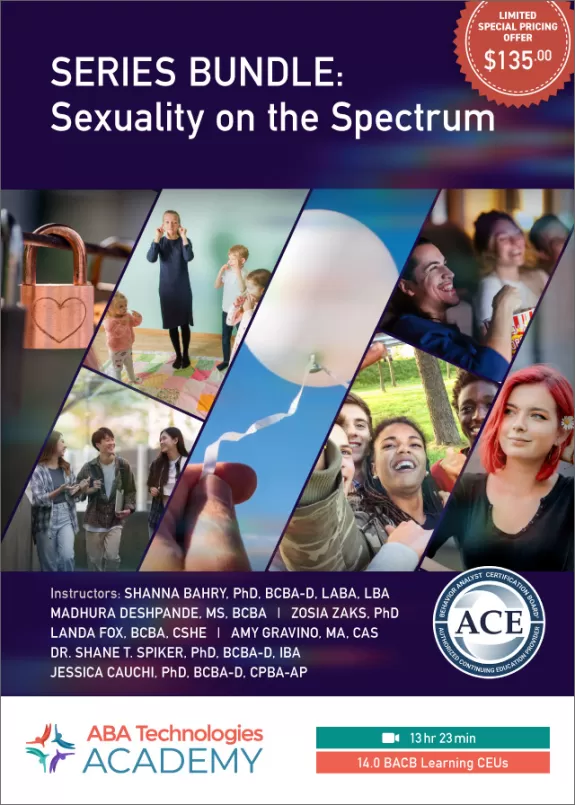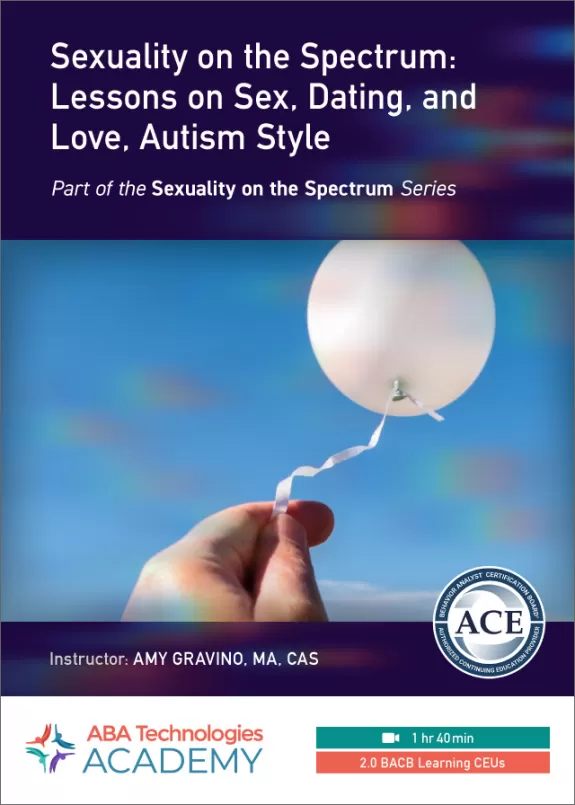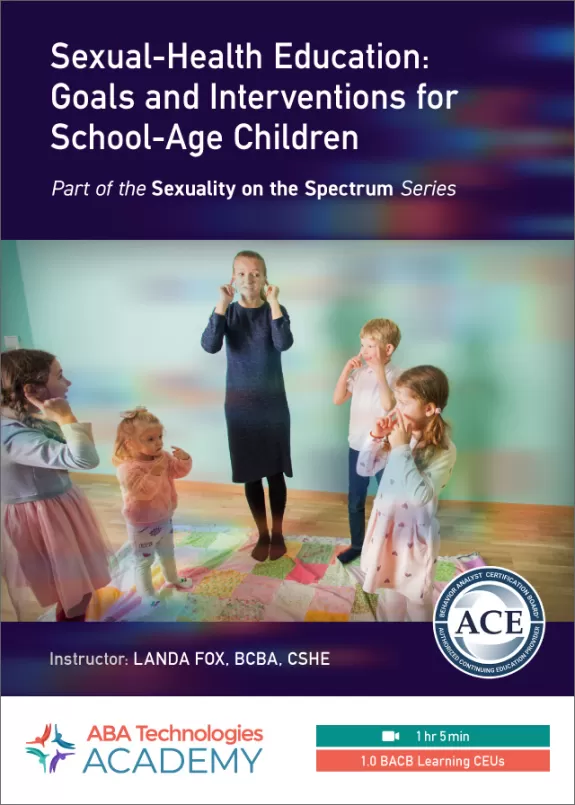Sexuality Education for Individuals With Autism: What We Know and How to Apply It
Contact us for group and customized options
Sexuality on the Spectrum Series
Abstract
Human sexuality is complex. Individuals with ASD face additional complexities and challenges as they grow and develop. This course helps professionals, caregivers, and family members understand what those challenges are and how to meet them through timely, effective sexuality education tailored to persons with ASD.
The course examines historical and cultural contexts, surveys current research, and provides evidence-based and real-world approaches to providing persons with ASD meaningful access to a well-considered sexuality education and sexual health.
I didn’t start my career thinking I would be teaching about sexuality. But the more I worked with adolescents and young adults, the more I realized that a lack of sexuality education is apparent in every single aspect of adult life. If we want to be helping adolescents and adults have great quality of life and great independence, we’re not going to get there if we don’t address this part of teaching.
Please note: The content presented in this Continuing Education (CE) course is also included in Florida Tech's ABA Online elective, BEH 5070. Students who have completed the BEH 5070 course will encounter overlapping material in this CE course. As a result, we advise those students against purchasing this CE.
Learning Checklist
Understand the background and context in which we approach sexuality education for individuals with ASD
Define sexuality, sex, sexual health, and sexuality education
Learn what research reveals that we do (and don't) know
Understand the nuances of puberty and gender identity in relation to ASD
Apply ASD diagnostic criteria to the question of sexuality education
Understand the increased risks for sexual abuse and sexual misconduct (perceived or real)
Learn to manage risk around implementing sexuality education for individuals with ASD/DD
Learn what behavior analysis can offer when teaching sexuality education
Learn who should teach; where, when, and how
Learn basic instructional concepts, target skills, and which teaching materials to use
Learn to discuss and teach appropriate behavior around masturbation
Understand and contextualize the roles social competence, independence, and language skills play




